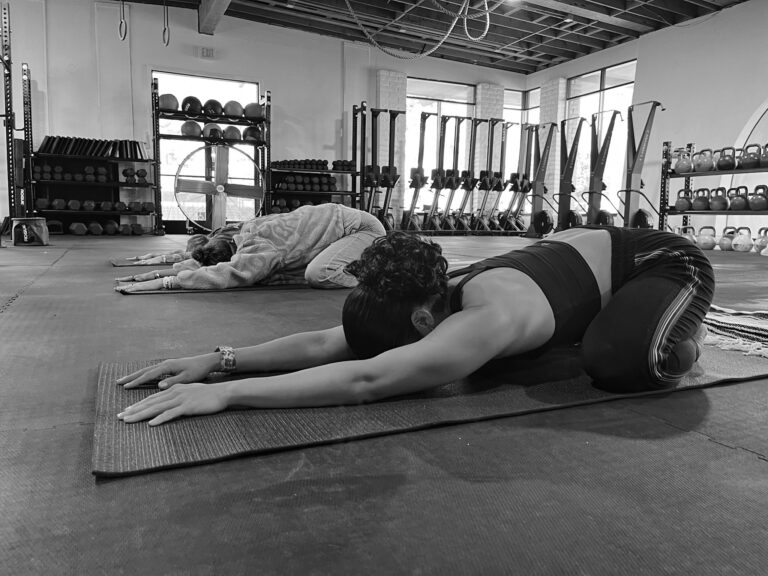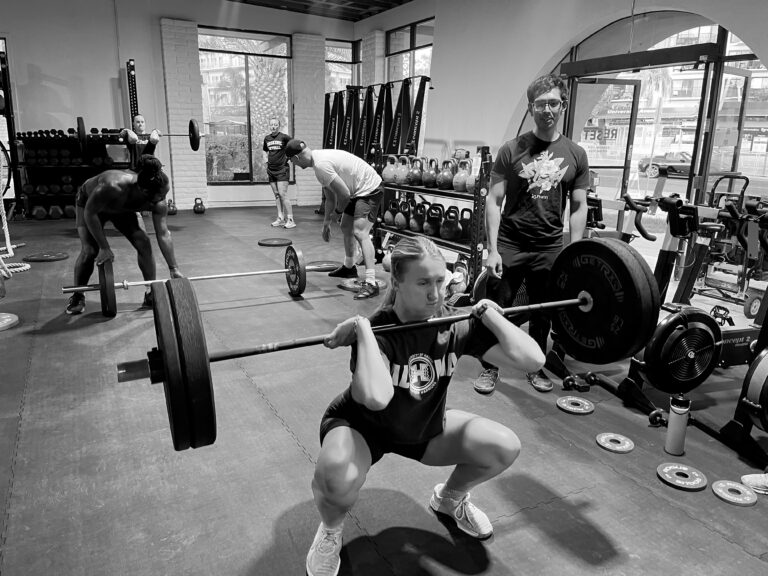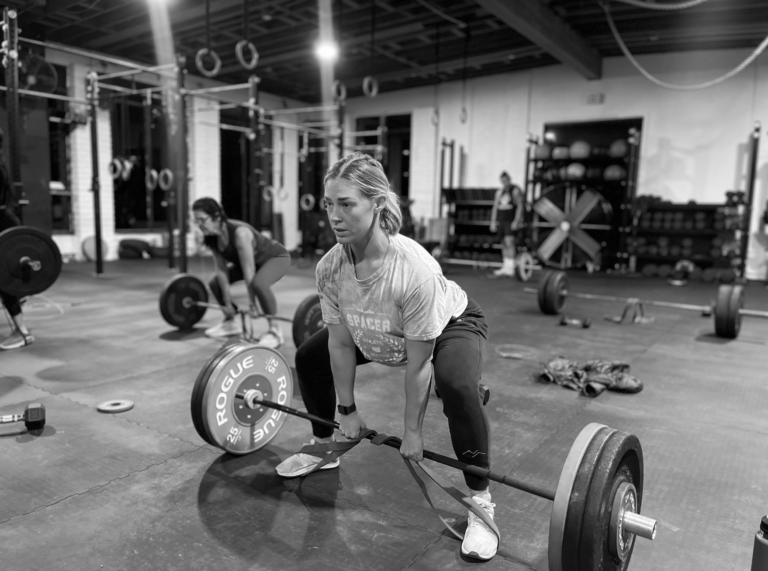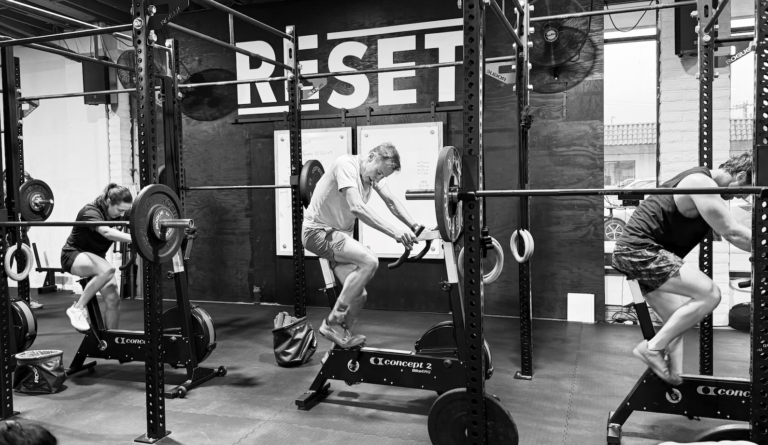Coaching: The Cornerstone of Lifelong Fitness and Personal Growth
When it comes to achieving lasting health and fitness, high-quality coaching can make all the difference. Too often, we see the role of a coach oversimplified—reduced to someone who merely counts reps, shouts out encouragement, or cheerleads from the sidelines. But truly effective coaching is so much more than that. It involves understanding the science behind exercise, recognizing how to guide an individual’s emotional and psychological growth, and crafting personalized strategies that keep people progressing for years to come. The best coaches act as mentors, educators, and partners in your fitness journey, illuminating a path that you can follow for a lifetime.
In this post, we’ll delve deep into why professional coaching lies at the heart of our training philosophy. We’ll discuss how it empowers you to move better, train smarter, and ultimately become your own fitness expert. We’ll also look at some of the science behind coaching, highlight resources you can explore, and explain why coaching is critical in building a more resilient, capable version of yourself.
Beyond Cheerleading: The True Role of a Professional Coach
A professional coach is not simply a loud voice shouting, “You got this!” across the gym floor. While encouragement is valuable, coaching is about guiding, instructing, inspiring, and educating. It’s about taking the guesswork out of training and helping you understand why you’re doing what you’re doing. Knowledge, after all, is a powerful motivator. When you know the “why” behind the “what,” you become more engaged, more consistent, and more disciplined.
Consider, for instance, the difference between someone who stumbles through random workouts from social media versus someone following a structured, periodized program designed by a well-qualified coach. The latter knows which exercises to perform, how to execute them properly, and how each piece of the puzzle fits into their broader goals. This clarity reduces frustration, uncertainty, and the risk of injury, while maximizing the potential for real progress.
Quality Movement: The Foundation of It All
We are obsessed with the quality of your movement—and you should be too. Moving well isn’t just about looking good doing an exercise; it’s about ensuring longevity, improving efficiency, and preventing injury. A coach’s trained eye can catch subtle technique flaws that might lead to overuse injuries or poor outcomes down the road. Fine-tuning your squat depth, adjusting your grip on a deadlift, or guiding the angle of your shoulder blades during a push-up can radically transform your training experience.
This attention to detail doesn’t just benefit performance athletes. Everyday individuals—people who want to carry their groceries without pain, play with their kids, or maintain independence well into their senior years—stand to gain immensely from improved movement mechanics. A 2016 study published in the Journal of Strength and Conditioning Research found that athletes who received technique-focused coaching improved their strength and form more rapidly than those who didn’t (Behm & Colado, 2016). When a coach provides consistent feedback and corrections, you learn to move with greater stability, efficiency, and safety. This yields better long-term results than simply piling on weight or jumping into advanced movements without a solid foundation.
The Psychological Edge: Coaching Beyond the Physical
Professional coaching doesn’t stop at biomechanics and workout programming. A truly exceptional coach recognizes that your mind influences your performance just as much as your muscles do. Whether it’s helping you overcome workout anxiety, pushing you through mental plateaus, or guiding you toward stress management techniques, coaches play a pivotal role in cultivating psychological resilience.
The coach-athlete (or coach-client) relationship is often a significant predictor of long-term success. Research in the Journal of Sports Sciences has shown that effective communication, trust, and emotional support from a coach can elevate motivation, adherence, and overall performance (Jowett & Ntoumanis, 2004). Think about the difference between struggling alone, unsure if you’re on the right track, and working side-by-side with someone invested in your personal growth. That emotional synergy helps you maintain consistency, even when life gets complicated, stressful, or demanding.
Lifelong Fitness: Equipping You With Skills, Not Just Workouts
What sets a great coach apart is their dedication to teaching you skills that last beyond the gym. Instead of blindly following directions, you learn how to select appropriate exercises, modify them based on how you feel, understand progressive overload, and recognize when to push harder or ease up. Over time, you gain an intuitive sense for how to structure your own training.
This educational aspect is crucial because it fosters independence. If you rely solely on someone else telling you exactly what to do, you’re not truly empowered. However, when a coach teaches you how to fish—so to speak—you acquire a toolkit for a lifetime of health and wellness. This matters not only for making progress in the short term, but also for maintaining those gains as your life circumstances shift. Whether you move to a new city, change jobs, or simply age into different life phases, your underlying knowledge of training principles ensures you continue thriving.
The Science of Coaching: Evidence-Based Methods, Not Guesswork
Coaching should be rooted in scientific principles. The fitness industry is flooded with fad diets, questionable exercise trends, and unsolicited “expert” advice that’s often based on anecdotal evidence. A professional coach filters through this noise, relying on established guidelines and cutting-edge research. By staying current with advances in sports science, physiology, and behavior change, a good coach ensures that every recommendation stands on a foundation of evidence, not guesswork.
For example, consider the principle of progressive overload—systematically increasing training stimulus to spur adaptation. A coach can help you apply this concept safely and effectively. They might recommend slightly increasing the weight you lift, modifying your rest periods, or introducing new exercise variations at just the right time. Understanding this principle and its proper application can mean the difference between perpetual plateaus and steady, long-term gains. For more details on the science of progressive overload, check out Jeff Nippard’s YouTube video on progressive overload, where he breaks down the concept and provides tangible examples of applying it in practice.
Similarly, a coach can direct you toward credible resources for nutrition, mobility, and recovery. Instead of hopping from one fad diet to another, you’ll learn the basics of macronutrients, portion control, and nutrient timing. Rather than ignoring flexibility and joint health, you’ll discover how to integrate mobility drills, foam rolling, or even yoga sessions for better overall function. A great place to start learning about foundational exercise science can be found on reputable sites like the American College of Sports Medicine (ACSM) or the National Strength and Conditioning Association (NSCA).
Coaching as a Catalyst for Habit Formation
Ever wonder why some people never miss a workout while others struggle with consistency? It’s often because the consistent individual has better habits and systems in place. A coach can guide you through the process of building these habits—setting realistic goals, tracking your progress, adjusting your schedule, and developing rituals that keep you motivated, even on bad days.
Behavioral science tells us that habits form when actions are repeated under stable conditions. Coaches can help you identify potential roadblocks, develop contingency plans, and create cues that trigger your workouts. For example, a morning workout might be tied to your alarm clock: as soon as you wake up, you put on your gym clothes and head straight out the door. Or, a coach might suggest you keep your gym shoes and a packed duffle bag by the door to reduce decision fatigue.
This kind of environmental engineering and strategic planning makes fitness more accessible. In fact, research published in Annals of Behavioral Medicine suggests that forming stable habits and receiving social support (which a coach can provide) significantly improves exercise adherence (Kaushal & Rhodes, 2015). By working with a coach to streamline your routines, you increase your chances of sticking with fitness over the long haul.
Individualization: Because You’re Unique
One of the greatest benefits of working with a professional coach is the individualized attention. Cookie-cutter programs may work for the masses, but your body, personality, history, and preferences are unique. A coach tailors your training to your current capabilities, your injuries, your schedule, and your psychological makeup.
If you’ve got knee issues, your coach will find effective modifications that allow you to train pain-free. If you’re a busy professional with limited time, they’ll craft a program that fits into your packed schedule without sacrificing results. If you thrive on variety, they’ll rotate exercises regularly to keep you engaged. If you prefer routine, they’ll structure your plan for predictability. This level of personalization not only improves outcomes, but also boosts enjoyment and adherence. The result is a sustainable approach that evolves as you do.
Measuring Progress and Celebrating Wins
Coaches help you measure progress in more meaningful ways than a number on a scale. Sure, body composition changes matter, but so do improvements in strength, mobility, endurance, and psychological well-being. A great coach will track multiple markers of success—maybe your improved squat depth, your ability to knock out more push-ups without rest, or a noticeable drop in your stress levels.
These non-scale victories keep you motivated, providing a sense of achievement that encourages continued effort. Over time, celebrating incremental improvements—like shaving a few seconds off your 1-mile run time or finally mastering a challenging bodyweight movement—builds confidence. This confidence spills over into other areas of life, reinforcing that the skills you’re developing aren’t just about fitness; they’re about personal growth.
Communication and Feedback Loops
Clear, open communication between you and your coach is essential. Don’t hesitate to ask questions, share your struggles, or highlight what’s working well. Coaching is a two-way street, and your input helps the coach refine their approach. Members who proactively communicate their needs and experiences often achieve better results because the feedback loop is continuous and constructive.
Many coaches use technology to track your workouts, recovery, and even your nutrition. They may use apps or online platforms to log your sessions, provide real-time feedback, and analyze your progress. This integrated approach ensures that you’re never left guessing and that every adjustment is data-driven.
Exploring Additional Resources
To deepen your understanding of the coaching process and the science behind it, consider exploring the following:
- Precision Nutrition: A trusted source for evidence-based nutrition coaching, habit formation strategies, and behavioral change techniques.
- Stronger By Science: A website known for digging into research and distilling complex training topics into practical advice.
- Kelly Starrett’s MobilityWOD: An excellent resource for learning about movement quality, mobility, and recovery methods from a leading physical therapist and coach.
- Scientific Studies:
- Jowett, G., & Ntoumanis, N. (2004). The Coach-Athlete Relationship in Sport. Journal of Sports Sciences, 22(4), 327–334. https://doi.org/10.1080/02640410410001675370
- Kaushal, N., & Rhodes, R. E. (2015). The Home Physical Environment and Its Relationship with Physical Activity and Sedentary Behavior: A Systematic Review. Annals of Behavioral Medicine, 49, 790–809. https://doi.org/10.1007/s12160-015-9705-z
(Note: While the Kaushal & Rhodes study is about the home environment’s influence, it also underlines the importance of support and structured environments for adhering to exercise routines. Your coach can help you create such an environment.)
Embracing Coaching as a Path to Lifelong Growth
Coaching is not a quick fix; it’s an investment in yourself that yields dividends for years to come. Every session under a skilled coach’s guidance is an opportunity to learn, refine your approach, and add a new tool to your fitness arsenal. Over time, you’ll become more confident in navigating your health journey. You’ll internalize principles that transcend sets, reps, and workouts, influencing how you approach goals in all areas of life.
Imagine looking back a year from now and realizing how far you’ve come. You’re not just stronger physically—you’re more disciplined, more aware, and more capable of facing challenges head-on. That’s the real gift of coaching: it shapes you into a more resilient, resourceful person who carries these lessons into your daily life, your career, and your relationships.
Soooo…
Professional coaching sits at the heart of everything we do because we know that expertise, guidance, and education produce lasting change. We don’t want you to be fit for a month; we want you to be fit for a lifetime. We don’t aim to make you dependent on us; we strive to make you independent and informed, capable of thriving no matter where life takes you.
So, the next time you step into the gym, remember: you’re not just following instructions, you’re learning principles that can shape your body, mind, and future. By embracing coaching, you’re taking a powerful step toward unlocking your full potential—physically, emotionally, and psychologically. It’s an investment that pays off daily and endures as long as you continue to learn, grow, and challenge yourself.






